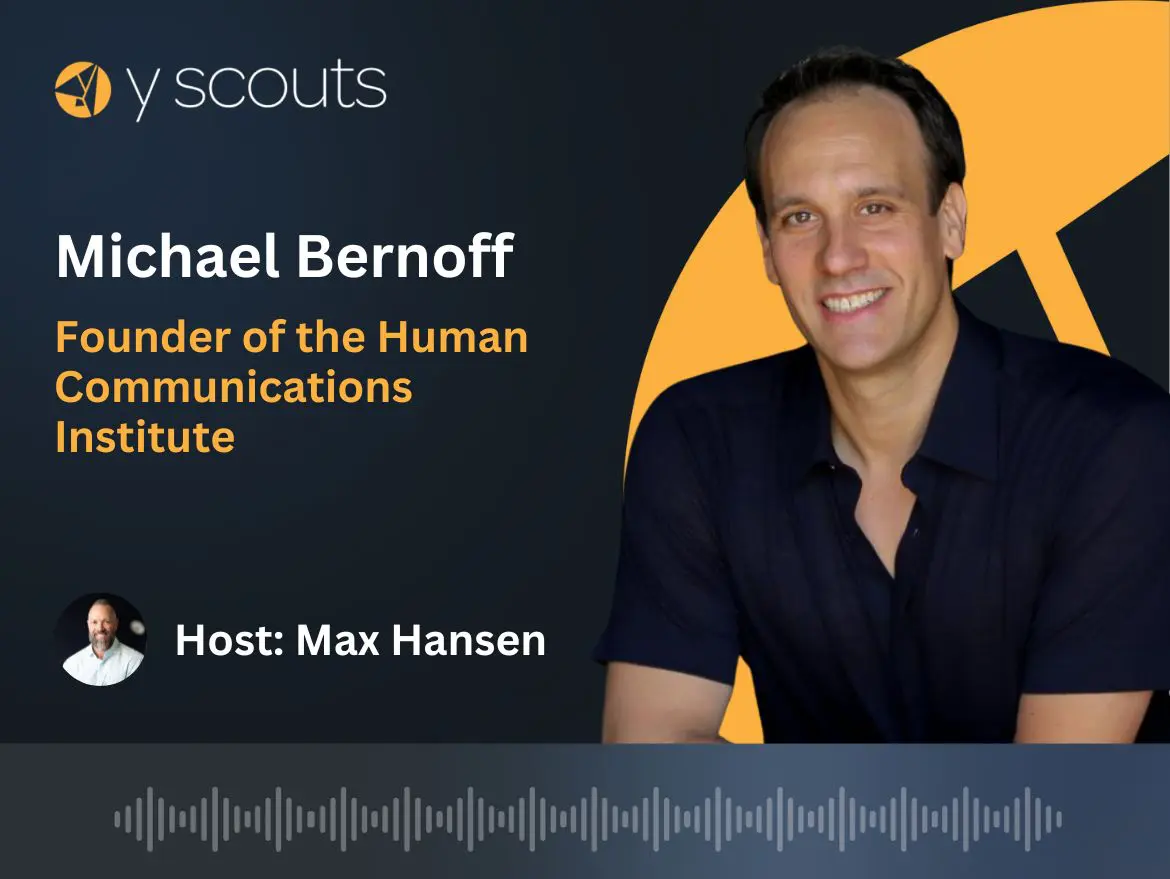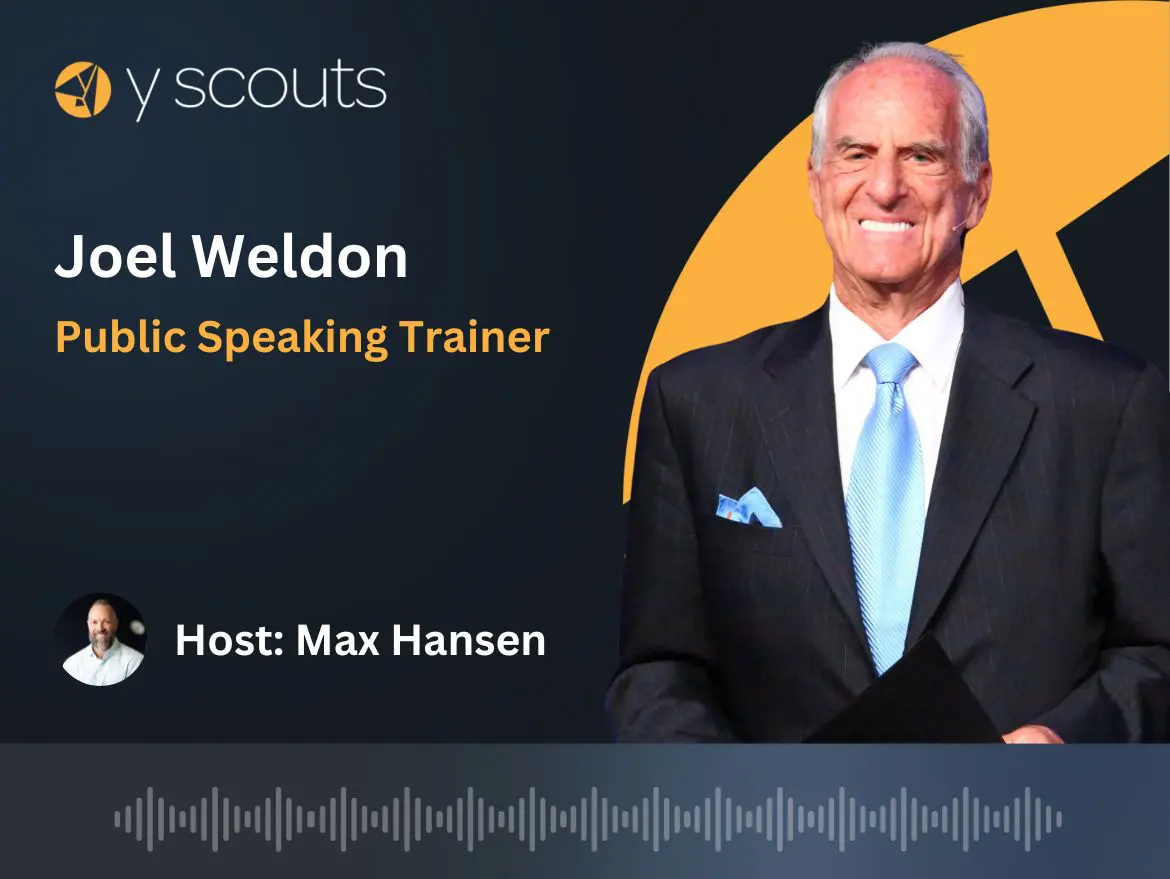Today we’re interviewing Aaron Hurst, the co-founder & CEO of Imperative, and the author of The Purpose Economy. Aaron has been wired to challenge the status quo from a very early age. He sees opportunity and potential in every direction, and by his own admission is a bit of a troublemaker. During Aaron’s childhood, he moved around a lot and, as a result, he developed the important skill of pattern recognition, a trait that has served him well throughout his entrepreneurial efforts. Early in Aaron’s career, he founded the Taproot Foundation, a pro-bono community of professionals who volunteered their time and expertise to helping mission-driven nonprofits with the marketing, PR, and other important services they need to achieve maximum impact. This community blossomed into a $15 billion marketplace.
Perhaps the most interesting takeaway was the power of purpose that emerged. Aaron would constantly hear about the sense of meaning the participants would feel from helping the nonprofit community. This theme continues today; Aaron and his team at Imperative focus on unlocking and measuring the power of purpose inside of organizations, not only for the organization, but helping the individual employees inside of organizations to connect their individual purpose to the purpose of the company. In 2014, Aaron published his book, The Purpose Economy, which predicts the next economic wave will be known as the Purpose Era.
Table of Contents
ToggleShow Notes
- 3:30 – Early memories from Aaron Hurst of entrepreneurship & innovation
- 5:18 – The benefits of frequently relocating during childhood & becoming a global citizen
- 7:50 – Buddhist upbringing & the idea of consciousness
- 10:00 – Taproot Foundation
- 13:08 – The gratification of doing pro-bono work outweighing that of the “paycheck job”
- 14:35 – Labels on the economies of the human existence (agrarian, industrial, purpose economies) and how his work at Taproot led to Imperative
- 16:27 – The biggest myths & truths around purpose
- 19:18 – Cause versus purpose
- 21:10 – The Imperative process
- 26:01 – Is purpose a luxury?
- 28:48 – Job crafting
- 32:03 – Metropolitan areas trying to become the “next Silicon Valley”
- 34:26 – Book by Aaron Hurst, called “The Purpose Economy,” and his strategy for releasing it
- 39:37 – His daughter’s education campaign for Congress on bullying
Show Links
- Imperative
- The Taproot Foundation
- The Purpose Economy book
- His daughter’s congressional anti-bullying initiative, #DCBullyBusters
- Aaron Hurst discussing our evolution from Information Economy to Purpose Economy
Aaron Hurst Podcast Interview
You’ve essentially had entrepreneurial DNA flowing through you your whole life. Is there a particular memory you have from when you were young where you knew pursuing an entrepreneurial path, challenging the status quo and living on the edge of innovation was going to be the hallmark of who you are?
It’s funny — I don’t think anyone in my family even knew the word “entrepreneur.” It wasn’t something in my vernacular. I just always sort of saw myself as a troublemaker. I always saw the status quo and felt like a better way to do things existed. Also, I always started clubs — I probably had 10 different clubs in high school that I started. I had my own business in high school, and I saw opportunity everywhere. Although I wouldn’t have called it entrepreneurship at the time, in retrospect, it was. I remember being very much a futurist with a progressive mindset.
My dad always tells me this story — I think it was in junior high. We were walking by a small lake outside of our hometown, Boulder, Colorado. For whatever reason, I started talking about how we were eventually going to have water shortages and we should start pooling our money into buying fresh water sources. That way, we could still have a little bit of profit when water becomes scarce. Even then, I saw where the world was going and saw opportunity in that.
You moved around quite a bit during your childhood. You lived in quite a few different places — both in the states as well as abroad. As you look back on that, I can imagine it was challenging making friends and then having to uproot and move. What have been the positives of that?
It definitely was painful at times, but there were a lot of positives. We moved every few years. One, it really taught me pattern recognition. You started to see the same things emerge across different cultures, and you saw the actual similarities between people who called themselves “different.” It helped me learn how to quickly connect with new groups of people. It also taught me that we’re way more resilient and adaptable than a lot of people who were born and raised in one town and never go anywhere.
Since I graduated from college, I was in Chicago, then San Francisco, then Brooklyn and now Seattle. I believe in that old cliché: “Wherever you go, there you are.” And also realizing you don’t need to be fully rooted in any one area; you can really make the world your home. I wouldn’t trade it for the world. I think it was great to be able to move around that much. There are certainly downsides. I have some level of jealousy of kids who lived in one place, who also had the same friends in kindergarten that they did in high school. But I think they miss something significant. I’m a big advocate for study abroad, for example, and other opportunities to get students to see themselves as a global citizen.
Did I read that you were raised Buddhist?
Yes, my parents were both Tibetan Buddhists, part of a Buddhist cult out of Boulder, Colorado. They moved to Halifax, Nova Scotia. I grew up going to a Buddhist elementary school in Boulder and then had heavy involvement up in Nova Scotia as well. It was a largely Jewish population of folks who had embraced Tibetan Buddhism. I struggle to even call it Buddhism, because I don’t think it was authentically of that culture. I think a lot of religion is culture, not just faith. While I don’t practice Buddhism and rejected that cult, I feel like a lot of my work since then was heavily influenced by that. Especially around the whole idea of consciousness, and seeing the world as those who are conscious and those who aren’t. Much of my career is trying to increase that sense of consciousness in the workplace.
You did something truly magical in creating a multi-billion dollar, pro-bono network of services for not-for-profit communities. What spurred the Taproot Foundation?
Taproot Foundation was my venture before Imperative. It started in 2001. Most good ideas are very simple ones. The idea was that nonprofits need the same marketing, tech, finance, HR, recruiting etc. services as companies, but they can’t afford them. Almost without exception. So they’re increasingly being left behind in a market where those services are what define successful organizations. We said, “How do we make pro-bono services prevalent in these other professions?”
It took about five years of really understanding intrinsic motivation as well as how to harness it. How do you actually get someone to complete a complex project? You can’t reward them with a promotion. That really led to the largest experiment that I know of in history on intrinsic motivation — really figuring out, over the course of thousands of complex projects, how you use that intrinsic motivation to inspire people and then get them to finish pro-bono work.
It was remarkable, because when I started Taproot, nonprofits basically said, “We don’t want pro-bono work. It never gets done.” By the time I left Taproot a dozen years later, it was a multi-billion dollar marketplace, we had affiliates all over the world. We had really proven that, once you understand intrinsic motivation, nonprofits really can count on pro-bono work. It got to the point where the amount of work was about four times what is done in terms of cash philanthropy in corporations. It had a massive impact on the nonprofit sector, and people’s identity as professionals.
You mentioned that roughly only 1/3 of the workforce is truly purpose-oriented. Is purpose a luxury that only certain people have access to?
We saw no correlation at all between income and purpose. We saw people in the highest-end jobs not purpose-oriented, as well as those in low-end jobs who have purpose. I think the whole idea that you have to have a certain amount of income is false. In some ways, it’s actually really patronizing. It created part of the problem — of leaders often believing, “I have certain jobs. There are certain people who can’t possibly worry about purpose.” That’s not how it works. You go into a Starbucks and see baristas who are working with purpose and those who aren’t. You see hospital janitors, who have the really challenging job of cleaning hospital rooms, and they still find purpose in that experience.
There’s the great book and work of Viktor Frankl, who was a slave at a concentration camp in Nazi Germany. He found meaning in that experience. We really do a disservice when we say that poor people can’t have purpose. It’s patronizing. It gives us an excuse to create jobs and management styles that are dehumanizing.
For Aaron Hurst and more Built On Purpose Podcast episodes, visit https://yscouts.com/podcast.
Y Scouts is a leadership search firm that finds purpose-aligned and performance-proven leaders to help organizations achieve their missions faster. Ready to supercharge your leadership search and get the right person in your organization? Contact Y Scouts.





